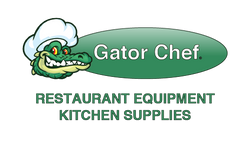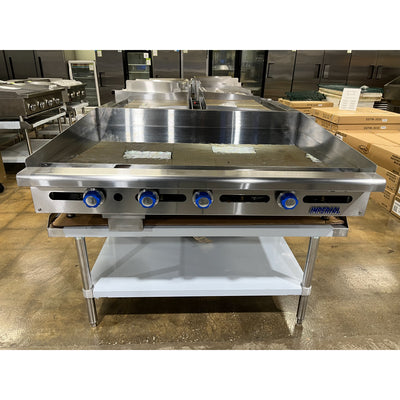Operator 101: Food Safety
 In the foodservice industry, food safety refers to the proper practice of preparing and storing food to avoid foodborne illness. Food safety guidelines are crucial in guaranteeing customers health and maximizing the longevity of food products. To ensure food safety is the number 1 priority at your restaurant, follow these tips.
In the foodservice industry, food safety refers to the proper practice of preparing and storing food to avoid foodborne illness. Food safety guidelines are crucial in guaranteeing customers health and maximizing the longevity of food products. To ensure food safety is the number 1 priority at your restaurant, follow these tips.
Restaurant Food Safety Guidelines
Wash Hands Often
Handwashing is an essential aspect of restaurant food safety. That’s because germs and illnesses, such as the common cold and salmonella, can make it into our bodies through hand to mouth contact. To prevent this, all employees must thoroughly wash their hands before preparing food, handling food, after touching raw meat, poultry, seafood or eggs, and when shifting between tasks.
Recommended Simple Steps:
- Use designated hand-washing sink
- Scrub hands with soap and warm water for at least 20 seconds
- Dry hands with a clean paper towel or hand dryer
- Open the door and turn off the lights with a paper towel to prevent contact with bacteria
- Avoid touching hair and face after washing hands
Sanitize Surfaces
Frequently sanitizing and cleaning all surfaces, including prep areas, cutting boards, equipment, storage areas, trash cans, and floor drains, is incredibly important to food safety. This process removes food residue, dirt and germs from areas that come in direct contact with food.
Recommended Simple Steps:
- Scrape and clear surface of leftover food and debris
- Clean area with soap and hot water
- Rinse surface with water and a clean washcloth
- Use sanitizer
- Air dry
Prepare and Store Foods at Safe Temperatures
Prepare raw meat, poultry, seafood and eggs at the proper temperature to avoid food poisoning. It’s crucial to keep internal temperatures either above or below the danger zone range of 41 to 135 degrees Fahrenheit. To prevent the spread of bacteria, temperature-sensitive foods should not be kept in the danger zone for more than 2 hours.
Cold foods: store at or below 41 degrees
Hot foods: store at 140 degrees or above

Wash Fruits and Vegetables
Thoroughly wash all produce before cooking to remove dirt and bacteria from the surface. Follow some recommended simple steps:
Recommended Simple Steps:
- Wash hands before handling
- Use separate prep sink to wash produce
- Soak produce in vegetable wash or distilled vinegar for 30 seconds, then rinse and air dry
- Spray produce with distilled vinegar and scrub with a brush, then rinse and air dry
Prevent Cross-Contamination
Cross-contamination is when allergens, bacteria or other microorganisms transfer from one object to another unintentionally. This can be extremely dangerous and potentially deadly to customers.
To prevent cross-contamination, use separate products when working with different types of food. Implement a color-coded system for tools like cutting boards, serving spoons and tongs, to keep track of what supplies are used for which ingredients.
Preventing Allergic Reactions
Some Tips:
- Never prepare an allergen-free meal with the same cutlery used on normal dishes
- Use designated allergen-safe products in your kitchen
- Train staff to properly handle allergy requests
- Make sure staff members are aware of common food allergies known as the “big 8”
- Milk
- Fish
- Soybeans
- Tree nuts
- Peanuts
- Eggs
- Shellfish
- Wheat
Food Safety in Self-Service Areas
Some Tips:
- Frequently sanitize surfaces including serving utensils, food storage containers, sneeze guards and countertops
- Provide individually wrapped flatware
- Install flatware, napkin, and straw dispensers designed for single-use items
Still Have Questions?
If you're still unsure about proper food safety techniques, sign up for our in-person ServSafe Certified Food Protection Manager (CFPM) courses and exam certification! Learn more about this program here.
Happy Cooking,
Chef Al






Leave a comment